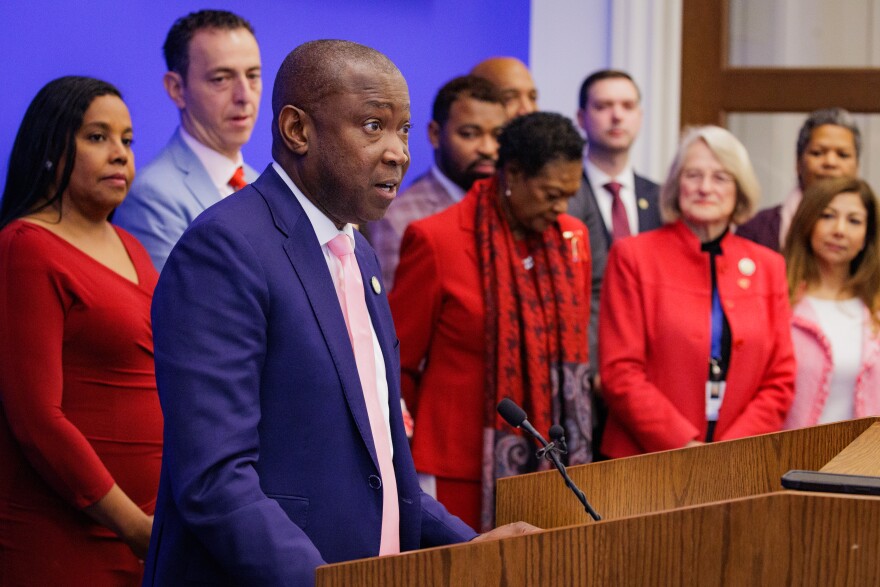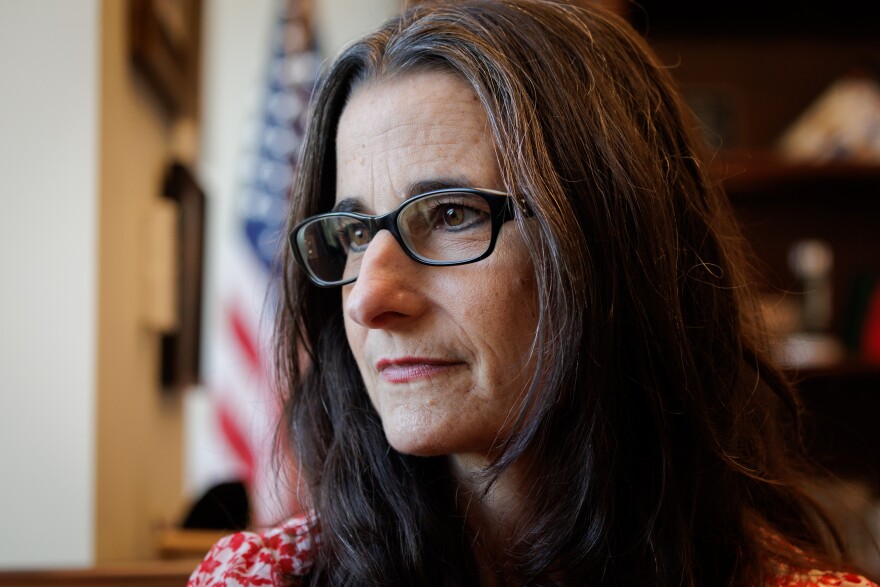Policy differences within the Democratic Party, and between the House and Senate caucuses are set to be more apparent now that a shorter stack of bills is before them.
The legislative session has already reached crossover — when bills must be passed in the chamber where they were introduced. Senators will now consider House bills and delegates will consider Senate bills.
“Crossover is a critical time for us to continue these conversations on issues that are most important to the people of the commonwealth of Virginia,” Speaker of the House Don Scott told reporters earlier this week.
Scott, a Democrat, and House leadership touted passing bills on gun regulations, access to reproductive healthcare and education.

Senate and House versions of bills often resemble each other, but even with Democrats in charge of both chambers, there are key differences among their proposals.
“The two very different houses have different political culture,” said Alex Keena, a political science professor at Virginia Commonwealth University. “They have different members in them who have different incentives and different constituencies. That's just sort of part of the process. This is how bicameralism works.”
The House passed a bill this session that would grant medical marijuana producers an earlier start on adult-use cannabis sales than the Senate’s version. And the Senate’s proposed regulation of skill games — devices that resemble slot machines — differs with the House's bill on how many machines a single establishment can operate.
When competing budget proposals are published Sunday, differences on a host of additional issues will come to light.
Lawmakers in each chamber will also consider some topics for the first time, like eliminating court-appointed attorney fees and work credits while incarcerated. Or they’ll examine issues that were addressed by unsuccessful bills in their own chamber, like regulating and expanding license plate readers or climate resiliency management.
Democratic bills on topics such as nonbinary marriage licenses, collective bargaining and campaign finance reform did not make it through the General Assembly.
Sen. Jennifer Boysko (D-Fairfax) sponsored a bill that would’ve expanded collective bargaining rights for government workers at the state and local level.

“There was a fiscal impact that was pretty hefty, and I think that was what scared my colleagues,” said Boysko. “However, this was the number one priority for the labor community, and they worked so hard for all of us to help us win the majority.”
Campaign finance reform proposals sought to cap campaign contributions, bar public utilities from political donations and restrict personal use of campaign funds all died before crossover. Committee leadership often played a role in their demise, not docketing certain bills.
Boysko said Sen. Louise Lucas (D-Portsmouth) was being intentional with budget choices.
“Chair Louise Lucas, who chairs the Finance committee, is being very deliberate about being fiscally responsible to make sure that Democrats are really being thoughtful to make certain that we maintain our triple-A bond rating,” she said.
Sometimes, these bills were killed due to politics, other times due to policy, said Keena.
“Leadership wants to win elections, and they don't want to embarrass their members or show too much division,” he said.
Even after these interparty differences are reconciled, Scott noted there’s one more step: the governor’s signature.
“Hopefully, we'll give him some tough choices to make and maybe some good choices to make, too,” the Democrat said.



